Your Best
Custom LiFePo4 Battery Pack Manufacturer & Supplier in ChinaCall us today

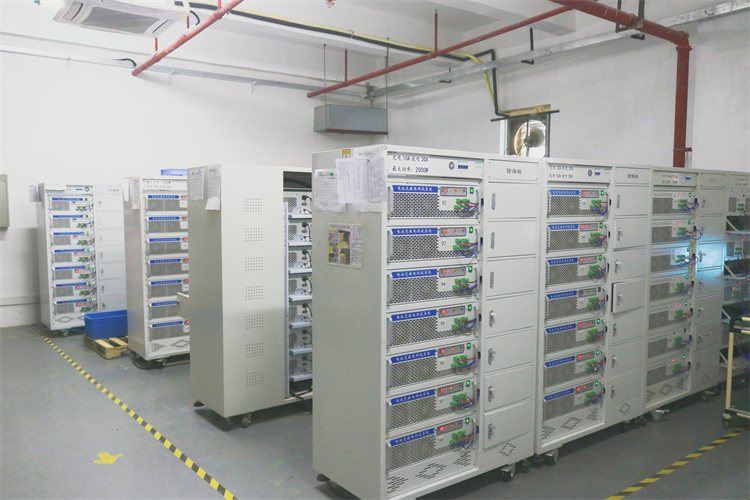
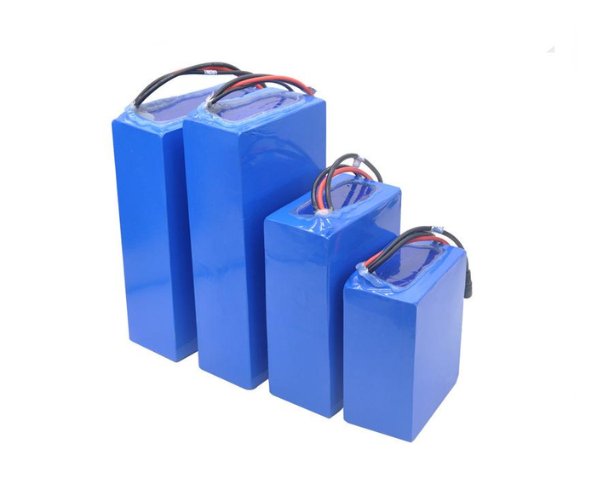
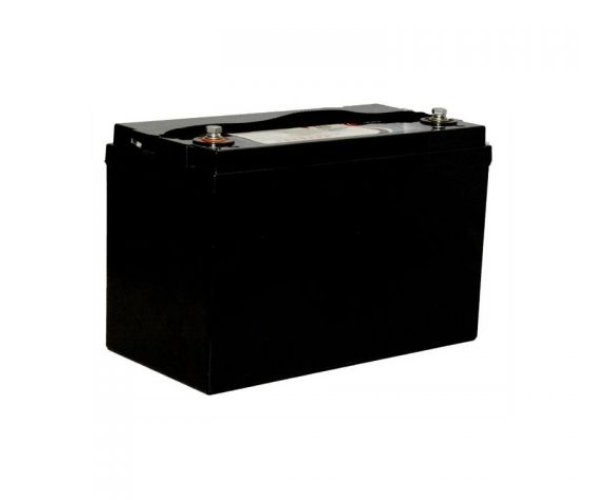
 24V 30Ah LiFePO4 Battery Pack
24V 30Ah LiFePO4 Battery Pack 24V 50Ah LiFePO4 Battery Pack
24V 50Ah LiFePO4 Battery Pack 24V 100Ah LiFePO4 Battery Pack
24V 100Ah LiFePO4 Battery Pack 24V 200Ah LiFePO4 Battery Pack
24V 200Ah LiFePO4 Battery Pack 36V 50Ah LiFePO4 Battery Pack
36V 50Ah LiFePO4 Battery Pack 36V 60Ah LiFePO4 Battery Pack
36V 60Ah LiFePO4 Battery Pack 36V 100Ah LiFePO4 Battery Pack
36V 100Ah LiFePO4 Battery Pack 36V 200Ah LiFePO4 Battery Pack
36V 200Ah LiFePO4 Battery Pack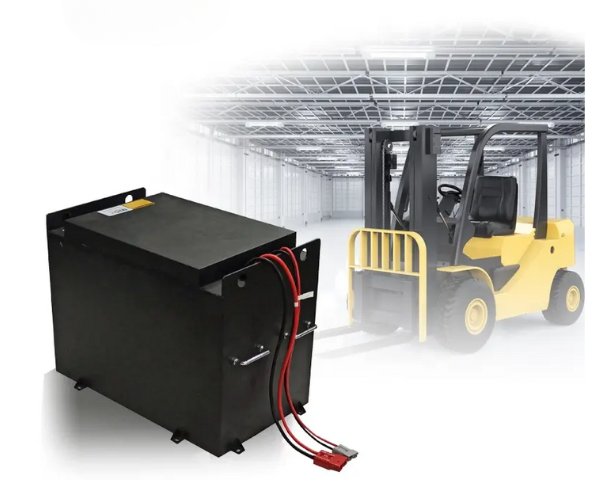
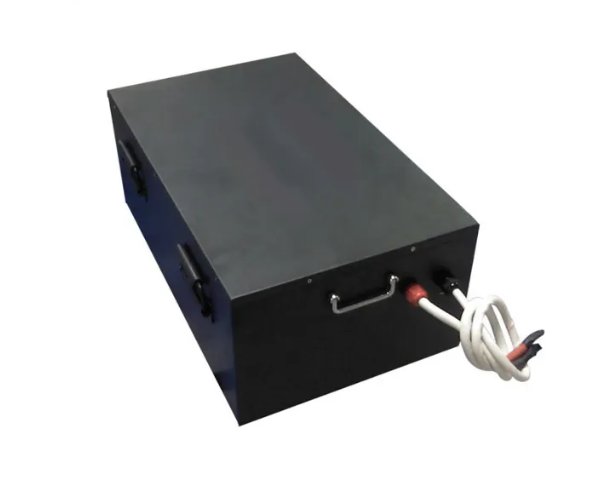
 48V 20Ah LiFePO4 Battery Pack
48V 20Ah LiFePO4 Battery Pack 48V 50Ah LiFePO4 Battery Pack
48V 50Ah LiFePO4 Battery Pack 48V 200Ah LiFePO4 Battery Pack
48V 200Ah LiFePO4 Battery Pack 48V 1000Ah LiFePO4 Battery Pack
48V 1000Ah LiFePO4 Battery Pack












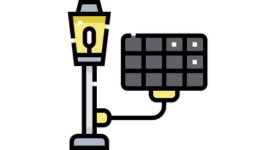



KET's LFP battery pack has passed FCC, CE, UL, MSDS, UN38.3 and other certifications and safety reports

KET have an independent R&D team with more than 20 engineers currently capable of giving various custom LiFePO4 battery pack solutions within 24 hours.

Grade A brand new LFP battery cells from BYD, Samsung, LG, Sony, Catl, etc.

KET has the ability to provide a variety of customization services, including voltage, protection board function customization, capacity, housing, etc.
 High Energy Density
High Energy Density Long Cycle Life
Long Cycle Life Low Self-Discharge Rate
Low Self-Discharge Rate Environmentally Friendly
Environmentally Friendly Wide Operating Temperature Range
Wide Operating Temperature Range Safety
Safety UL
UL CB
CB MSDS
MSDS UN38.3
UN38.3 CE
CE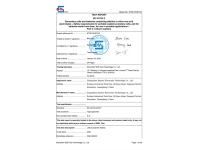 IEC-62133
IEC-62133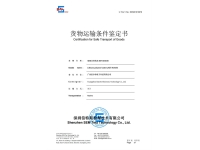 Certification for Safe Transport of Goods
Certification for Safe Transport of Goods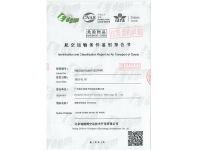 air transport
air transport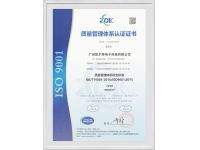 ISO 9001 2015
ISO 9001 2015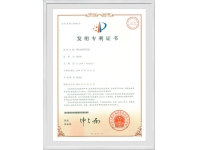 invention of Lithium battery testing equipment
invention of Lithium battery testing equipment Battery charge and discharge test system
Battery charge and discharge test system Rechargeable battery performance testing equipment
Rechargeable battery performance testing equipment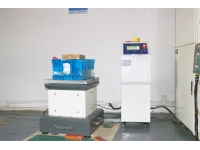 Vibration Testing Machine
Vibration Testing Machine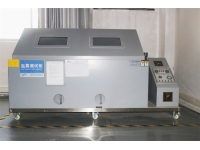 Salt spray test cabinet
Salt spray test cabinet Lithium battery automatic testing equipment
Lithium battery automatic testing equipment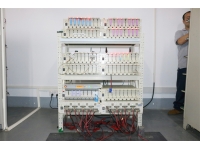 Discretionary cabinets
Discretionary cabinets Integrated Tester
Integrated Tester Battery Detector
Battery Detector Automatic Wire Stripping Machine
Automatic Wire Stripping Machine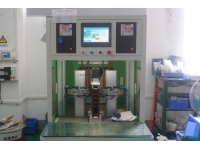 Automatic spot welding machine
Automatic spot welding machine LiFePO4 stands for Lithium Iron Phosphate, which is a type of lithium-ion battery chemistry. It is often used in rechargeable batteries due to its high energy density and long cycle life.
LiFePO4 stands for Lithium Iron Phosphate, which is a type of lithium-ion battery chemistry. It is often used in rechargeable batteries due to its high energy density and long cycle life.
 LiFePO4 batteries are known for their stability, safety, and durability. They are commonly used in applications such as electric vehicles, solar energy storage systems, and backup power supplies.
LiFePO4 batteries are known for their stability, safety, and durability. They are commonly used in applications such as electric vehicles, solar energy storage systems, and backup power supplies.
 KET is a professional (LiFePO4) lithium iron phosphate battery manufacturer, we can provide you with expertise on LiFePO4. So you can Contact Us Now for more information!
KET is a professional (LiFePO4) lithium iron phosphate battery manufacturer, we can provide you with expertise on LiFePO4. So you can Contact Us Now for more information!
 Safety: LiFePO4 batteries are safer than other lithium-ion batteries, as they are less prone to thermal runaway and fire hazards.
Safety: LiFePO4 batteries are safer than other lithium-ion batteries, as they are less prone to thermal runaway and fire hazards. Cycle life: LiFePO4 batteries have a longer cycle life (over 2000 cycles) compared to other lithium-ion batteries (about 500-800 cycles).
Cycle life: LiFePO4 batteries have a longer cycle life (over 2000 cycles) compared to other lithium-ion batteries (about 500-800 cycles). Energy density: LiFePO4 batteries have a lower energy density compared to other lithium-ion batteries, such as lithium cobalt oxide (LiCoO2) or lithium nickel cobalt aluminum oxide (NCA).
Energy density: LiFePO4 batteries have a lower energy density compared to other lithium-ion batteries, such as lithium cobalt oxide (LiCoO2) or lithium nickel cobalt aluminum oxide (NCA).
 Cost: LiFePO4 batteries are more expensive compared to other lithium-ion batteries. However, due to the rapid development of China's lithium-ion battery supply chain, the cost of LiFePO4 batteries is now coming down rapidly.
Cost: LiFePO4 batteries are more expensive compared to other lithium-ion batteries. However, due to the rapid development of China's lithium-ion battery supply chain, the cost of LiFePO4 batteries is now coming down rapidly.
 Temperature range: LiFePO4 batteries can operate at a wider temperature range compared to other lithium-ion batteries.
Temperature range: LiFePO4 batteries can operate at a wider temperature range compared to other lithium-ion batteries.
 Raw materials: The cost of raw materials such as lithium, iron, and phosphate can be high, especially when compared to more abundant materials used in other batteries, such as lead or nickel. The cost of these materials can make up a significant portion of the total cost of the battery.
Raw materials: The cost of raw materials such as lithium, iron, and phosphate can be high, especially when compared to more abundant materials used in other batteries, such as lead or nickel. The cost of these materials can make up a significant portion of the total cost of the battery.
 Manufacturing: The manufacturing process for LiFePO4 batteries can be more complex than other types of batteries, which add to the cost. The production process requires high-precision machinery and the use of clean rooms to maintain the purity of the materials.
Manufacturing: The manufacturing process for LiFePO4 batteries can be more complex than other types of batteries, which add to the cost. The production process requires high-precision machinery and the use of clean rooms to maintain the purity of the materials.
 Safety features: LiFePO4 batteries are designed with a variety of safety features, such as overcharge protection, short circuit protection, and thermal management systems. These safety features add to the complexity of the manufacturing process and increase the cost of the battery.
Safety features: LiFePO4 batteries are designed with a variety of safety features, such as overcharge protection, short circuit protection, and thermal management systems. These safety features add to the complexity of the manufacturing process and increase the cost of the battery.
 Research and development: LiFePO4 batteries are a relatively new technology, and research and development costs are high.
Research and development: LiFePO4 batteries are a relatively new technology, and research and development costs are high.
In general, LiFePO4 batteries can handle charge currents between 0.5C and 3C.
As the capacity of different battery packs varies, the concept of how much "C" is used instead of how much "Amp" is used to describe the charge/discharge current of the battery. The "C" concept is commonly used to indicate the charge and discharge rates of batteries. It represents the ratio of the current (in amperes) to the capacity (in ampere-hours) of the battery. In simple terms, "C" is a way to express the charging or discharging speed relative to the battery's capacity.
To give you a clear understanding of the difference, we will illustrate the range of maximum charging currents by amp considering three examples:
Example 1: LiFePO4 Battery with 100Ah Capacity
Lower Limit: 0.5C
Maximum Charge Current = 0.5 x 100Ah = 50A
Upper Limit: 3C
Maximum Charge Current = 3 x 100Ah = 300A
Example 2: LiFePO4 Battery with 200Ah Capacity
Lower Limit: 0.5C
Maximum Charge Current = 0.5 x 200Ah = 100A
Upper Limit: 3C
Maximum Charge Current = 3 x 200Ah = 600A
Example 3: LiFePO4 Battery with 50Ah Capacity
Lower Limit: 0.5C
Maximum Charge Current = 0.5 x 50Ah = 25A
Upper Limit: 3C
Maximum Charge Current = 3 x 50Ah = 150A
Note: 0.5C-3C is then part of the manufacturer's customised content. We can customise the charging current to suit the customer's needs. So if you want to know the exact charging current of the battery pack you are using, you need to look at the battery's parameter label or ask the seller.
Here are some actual data to compare Lithium Iron Phosphate (LiFePO4) and Sealed Lead Acid (SLA) batteries:
Energy Density: LiFePO4 batteries have an energy density of about 120-160 Wh/kg, whereas SLA batteries have an energy density of around 30-50 Wh/kg.
Cycle Life: LiFePO4 batteries can typically endure 2000-5000 charge/discharge cycles before their capacity drops to 80% of the original. In contrast, SLA batteries usually have a cycle life of around 300-500 cycles.
Depth of Discharge (DoD): LiFePO4 batteries can safely handle a DoD of 80%. SLA batteries, on the other hand, should not be discharged beyond 50% DoD to maintain their lifespan.
Charging Efficiency: LiFePO4 batteries have a charging efficiency of 95-99%. This means they can convert 95-99% of the electrical energy supplied during charging into stored energy. SLA batteries typically have a charging efficiency of around 70-85%.
Weight: For example, a 100 Ah LiFePO4 battery may weigh around 12-15 kg, whereas a similar capacity SLA battery could weigh 30-40 kg or more.
Maintenance: LiFePO4 batteries are generally maintenance-free, while SLA batteries require periodic electrolyte level checks and topping up with distilled water.
Self-Discharge Rate: LiFePO4 batteries typically lose only 1-3% of their charge per month, while SLA batteries can self-discharge at a rate of 3-10% per month.
The resting voltage of a LiFePO4 (Lithium Iron Phosphate) battery refers to the voltage level of the battery when it is not being charged or discharged and is in a state of rest. It indicates the equilibrium voltage of the battery after it has stabilized and there is no active current flow.
The typical resting voltage of a fully charged LiFePO4 battery is around 3.2V per cell. So the resting voltages of the four common battery packs of different voltages in a fully charged state are
12V-LFP-Battery:12.8V
24V-LFP-Battery:25.6V
36V-LFP-Battery:38.4V
48V-LFP-Battery:51.2V
Here's a comparison between Lithium Iron Phosphate (LiFePO4) and Nickel-Metal Hydride (NiMH) batteries:
Energy Density: LiFePO4 batteries typically have an energy density of around 120-160 Wh/kg, while NiMH batteries have an energy density of about 60-100 Wh/kg.
Cycle Life: LiFePO4 batteries can endure 2000-5000 charge/discharge cycles before their capacity drops to 80% of the original. In contrast, NiMH batteries typically have a cycle life of around 500-1000 cycles.
Self-Discharge Rate: LiFePO4 batteries lose only about 1-3% of their charge per month, while NiMH batteries can lose up to 20% of their charge in the same period.
Charging Time: LiFePO4 batteries have a shorter charging time compared to NiMH batteries.
Environmental Impact: LiFePO4 batteries are more environmentally friendly than NiMH batteries. LiFePO4 batteries do not contain toxic heavy metals like cadmium, which is present in NiMH batteries.
The operating temperature of LiFePO4 batteries is -20°C to 60°C (-4°F to 140°F). LiFePO4 batteries exhibit good performance in cold weather conditions. Here are some characteristics of LiFePO4 batteries in cold temperatures:
Capacity Retention: LiFePO4 batteries have relatively high capacity retention in cold weather compared to other lithium-ion battery chemistries. They can maintain a significant portion of their rated capacity even in low temperatures.
Cold Cranking Performance: LiFePO4 batteries exhibit good cold cranking performance, enabling efficient engine ignition even in chilly conditions.
If you also need to use LiFePO4 batteries in environments below 20°C (4°F), then you can contact us. Our engineers can customise the heating of your LiFePO4 batteries so that they can be used in lower temperatures.
 12v-100ah-LiFePO4 battery: full charge voltage is 14.4V to 15.2V
12v-100ah-LiFePO4 battery: full charge voltage is 14.4V to 15.2V 24v-100ah-LiFePO4 battery: full charge voltage is 28.8V to 30.4V
24v-100ah-LiFePO4 battery: full charge voltage is 28.8V to 30.4V 36v-100ah-LiFePO4 battery: full voltage is 43.2V to 45.6V
36v-100ah-LiFePO4 battery: full voltage is 43.2V to 45.6V 48v-100ah-LiFePO4 battery: full voltage is 57.6V to 60.8V
48v-100ah-LiFePO4 battery: full voltage is 57.6V to 60.8V LiFePO4 batteries have a lower energy density and are more stable than other types of lithium ion batteries. They are less prone to thermal runaway. Once thermal runaway occurs, the battery temperature can quickly rise to dangerous levels and can lead to fire or explosion.
LiFePO4 batteries have a lower energy density and are more stable than other types of lithium ion batteries. They are less prone to thermal runaway. Once thermal runaway occurs, the battery temperature can quickly rise to dangerous levels and can lead to fire or explosion. LiFePO4 batteries have a higher thermal runaway temperature, which means they can withstand higher temperatures. They also have a lower risk of leakage and release few toxic gases or chemicals when damaged or punctured.
LiFePO4 batteries have a higher thermal runaway temperature, which means they can withstand higher temperatures. They also have a lower risk of leakage and release few toxic gases or chemicals when damaged or punctured. First of all, there are many types of battery voltage, such as 12v, 24v, 36v, 48v and so on. And the ordinary charger voltage is not necessarily the same.
First of all, there are many types of battery voltage, such as 12v, 24v, 36v, 48v and so on. And the ordinary charger voltage is not necessarily the same. Even a 12v lead-acid battery charger will not charge a 12v LiFePO4 battery. 12v LiFePO4 battery requires a charger with a charging voltage of 14v-14.6v, and most lead-acid battery chargers are lower than this voltage.
Even a 12v lead-acid battery charger will not charge a 12v LiFePO4 battery. 12v LiFePO4 battery requires a charger with a charging voltage of 14v-14.6v, and most lead-acid battery chargers are lower than this voltage. Longer lifespan: LiFePO4 batteries have a longer lifespan compared to lead-acid batteries. While lead-acid batteries typically last for 300-500 cycles, LiFePO4 batteries can last for up to 2000 cycles or more.
Longer lifespan: LiFePO4 batteries have a longer lifespan compared to lead-acid batteries. While lead-acid batteries typically last for 300-500 cycles, LiFePO4 batteries can last for up to 2000 cycles or more. Higher energy density: For example, a 100Ah LiFePO4 battery can weigh as little as 13kg, while a 100Ah lead-acid battery can weigh up to 32kg.
Higher energy density: For example, a 100Ah LiFePO4 battery can weigh as little as 13kg, while a 100Ah lead-acid battery can weigh up to 32kg. Faster charging: For example, a 100Ah LiFePO4 battery can be fully charged in 2-3 hours using a compatible charger, while a 100Ah lead-acid battery may take up to 8-10 hours to fully charge.
Faster charging: For example, a 100Ah LiFePO4 battery can be fully charged in 2-3 hours using a compatible charger, while a 100Ah lead-acid battery may take up to 8-10 hours to fully charge. More efficient: LiFePO4 batteries typically have a charge efficiency of 98%, while lead-acid batteries may have a charge efficiency of only 85-90%.
More efficient: LiFePO4 batteries typically have a charge efficiency of 98%, while lead-acid batteries may have a charge efficiency of only 85-90%.  Lower total cost of ownership: While LiFePO4 batteries may have a higher upfront cost compared to lead-acid batteries, their longer lifespan and higher efficiency can result in a lower total cost of ownership over the life of the battery. According to some estimates, the total cost of ownership for a LiFePO4 battery can be up to 30%.
Lower total cost of ownership: While LiFePO4 batteries may have a higher upfront cost compared to lead-acid batteries, their longer lifespan and higher efficiency can result in a lower total cost of ownership over the life of the battery. According to some estimates, the total cost of ownership for a LiFePO4 battery can be up to 30%. More environmentally friendly: LiFePO4 batteries are more environmentally friendly than lead-acid batteries. Lead-acid batteries contain hazardous lead and acid, which can be hazardous to the environment and health when disposed of and recycled.
More environmentally friendly: LiFePO4 batteries are more environmentally friendly than lead-acid batteries. Lead-acid batteries contain hazardous lead and acid, which can be hazardous to the environment and health when disposed of and recycled. Trust a leading manufacturer for high-quality 3.2V LFP batteries.
Design your own LiFePO4 battery pack to match your unique requirements.
Experience the convenience and versatility of our portable power station with LFP technology.
Power your marine adventures with our reliable and durable LiFePO4 battery solution.